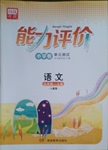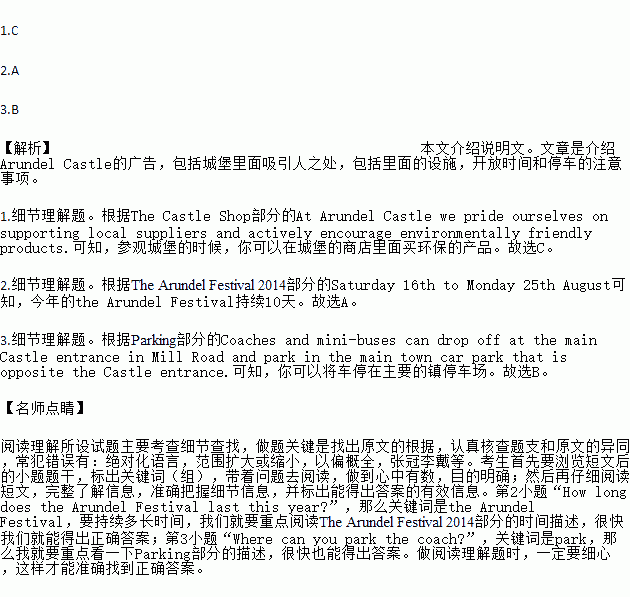题目内容
Welcome to Arundel Castle which is situated in West Sussex, England. The castle has a history of nearly 1000 years and has welcomed visitors traveling from all over the world. Arundel Castle also plays a starring role in many films.
The Gardens
The White Garden is planted with soft white Iceberg Roses, and Snow White Lilies.
The Rose Garden is newly planted with lovely old-fashioned English roses that are at their very best in June and July.
The Organic Kitchen Garden produces a wide range of seasonal fruit and vegetables, pears, cherries and apples.
The Castle Shop
In the Castle Shop, you will discover a wide and interesting range of gift ideas for everyone. It offers gifts and souvenirs designed to appeal to all tastes and pockets. Foods, china, books, and stationery (文具) are all available. Many are sold in this Castle Shop only.
At Arundel Castle we pride ourselves on supporting local suppliers and actively encourage environmentally friendly products.
The Arundel Festival 2014
Saturday 16th to Monday 25th August
The annual Arundel Festival gets bigger and better every year. It is one of the most amazing, diverse and easily accessible arts festivals in the UK, offering a mix of visual arts, music, theatre and street entertainment.
Parking
Coaches and mini-buses can drop off at the main Castle entrance in Mill Road and park in the main town car park that is opposite the Castle entrance. Please inform us when making your booking of how many parking permits are required.
1.What can you do when visiting the castle?
A. See how the local gifts are being made.
B. Get old-fashioned English roses as gifts.
C. Buy eco-friendly products in the Castle Shop.
D. Get seasonal fruits and vegetables free of charge.
2.How long does the Arundel Festival last this year?
A. 10 days. B. One week. C. 16 days. D. One month.
3.Where can you park the coach?
A. In Mill Road. B. In the main town car park.
C. Inside the Castle. D. At the main Castle entrance.
 能力评价系列答案
能力评价系列答案 唐印文化课时测评系列答案
唐印文化课时测评系列答案 导学与测试系列答案
导学与测试系列答案
